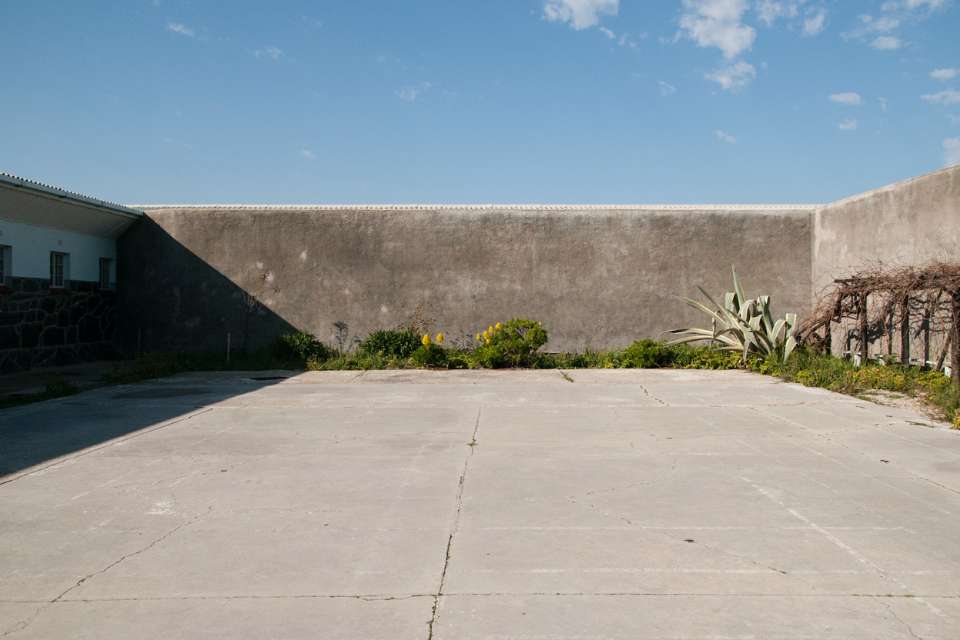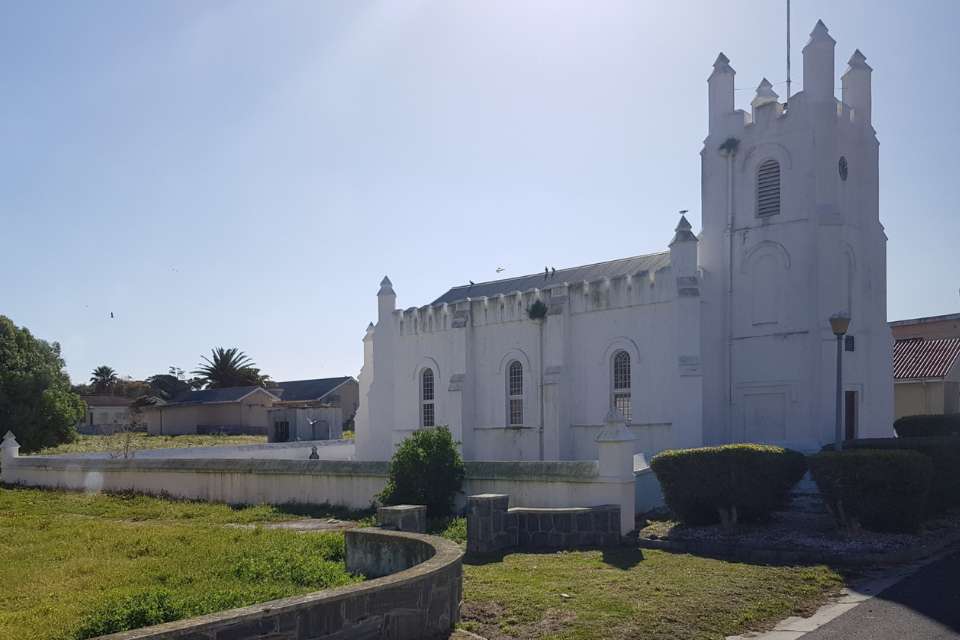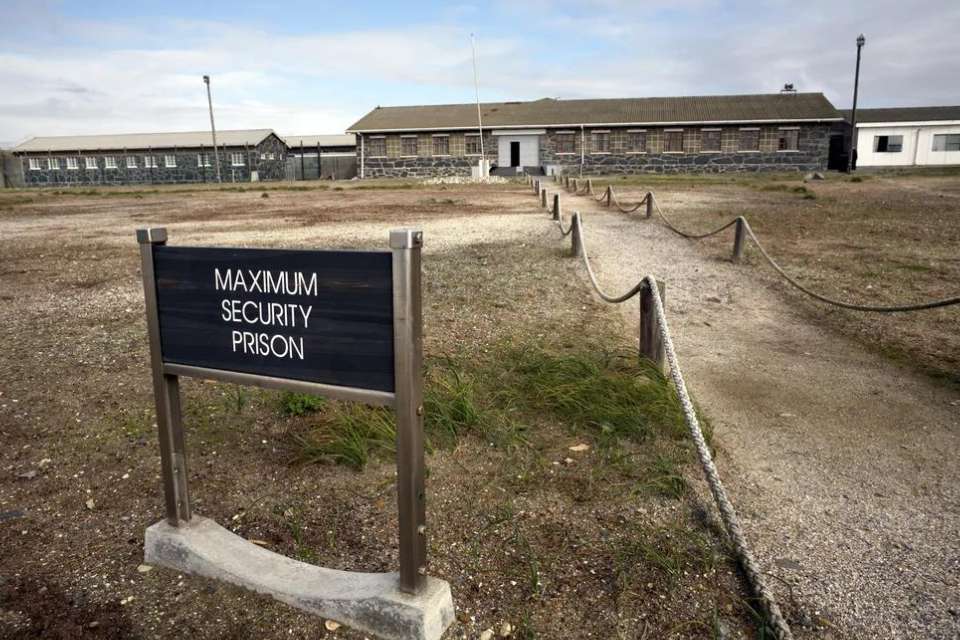Welcome to our article on the rich and poignant history of Robben Island. Located off the coast of Cape Town, South Africa, Robben Island holds a significant place in the country’s past.
Throughout the centuries, it has witnessed the transformation of the island from a place of banishment to a symbol of hope and resilience.
Robben Island’s history is intertwined with the apartheid era, where it served as a prison for political dissidents. The island’s buildings, including the maximum security prison, now stand as a testament to the triumph of democracy and freedom over oppression and racism.
Key Takeaways:
- Robben Island has a rich and poignant history.
- It served as a prison during the apartheid era.
- The island’s buildings bear witness to the triumph of democracy and freedom.
- Robben Island’s history is a powerful reminder of the struggle against oppression and racism.
- Visiting Robben Island allows you to learn about the island’s history and gain insight into the experiences of those who were imprisoned there.
Robben Island as a Place of Banishment

Robben Island has a long and dark history as a place of banishment. For nearly 400 years, it served as a convict station, where the Dutch sent their convicted criminals and political prisoners in the 17th century.
This practice continued under British rule in the 18th and 19th centuries, further cementing the island’s reputation as a prison.
Robben Island was not only a prison for criminals and political dissidents, but it also served as an asylum for the mentally ill and a colony for those suffering from leprosy, paupers, and the chronically ill in the 19th and early 20th centuries.
Robben Island during Apartheid

Robben Island gained international notoriety during the apartheid era in South Africa. Black political prisoners, including Nelson Mandela, were held on the island as part of the apartheid government’s policy of suppressing opposition.
The prison on Robben Island was known for its harsh conditions, symbolizing the oppressive regime of apartheid. Despite the difficulties they faced, the political prisoners exhibited remarkable resilience, becoming beacons of hope and inspiration for the struggle against injustice and inequality.
Robben Island as a World Heritage Site
In 1999, Robben Island was designated as a World Heritage Site by UNESCO. This prestigious recognition was bestowed upon the island due to its exceptional and universal value in telling the story of its tragic yet triumphant history.
Today, Robben Island stands as a testament to the struggle for freedom and democracy in South Africa, preserving its past and inspiring visitors from all around the world.
At Robben Island, visitors can explore the fascinating Robben Island Museum, which offers a wealth of information about the island’s history and the significant role it played in the fight against apartheid.
Through captivating exhibits and educational programs, the museum sheds light on the lived experiences of those who were imprisoned on the island and emphasizes the importance of preserving this remarkable cultural heritage site.
Robben Island’s designation as a World Heritage Site highlights its unique significance and reinforces its role as a place of remembrance and reflection.
The island’s buildings, with their rich architectural heritage, act as powerful symbols, reminding us of the struggle for justice and equality. By visiting the museum and experiencing Robben Island firsthand, visitors can gain a deeper understanding of the historical context and the impact of this remarkable place in shaping the nation’s identity.
Life on Robben Island

Life on Robben Island was incredibly challenging for its inhabitants. Being confined on the island meant enduring isolation and harsh conditions. Political prisoners, including iconic figures like Nelson Mandela, were subject to hard labor, meager rations, and minimal contact with the outside world.
The prison facilities consisted of cells, a courtyard, and a dining hall, each holding stories of resilience and determination.
Today, visitors have the opportunity to explore Robben Island and gain a deeper understanding of its history. Guided tours allow you to walk in the footsteps of those who were imprisoned on the island, gaining insight into their experiences and the significance of their struggles.
These tours provide a unique perspective on the hardships endured, showcasing the strength and spirit of those who fought against injustice.
Robben Island tours offer a powerful educational and emotional experience, shedding light on the facts and stories of this historic location.
By visiting the prison, learning about the conditions faced by prisoners, and hearing firsthand accounts, visitors can gain a profound appreciation for the resilience and sacrifice of those who were imprisoned on Robben Island.
Preservation and Management of Robben Island

The preservation and management of Robben Island is of utmost importance to us. As custodians of this historic site, the Robben Island Museum Council is dedicated to protecting the island’s buildings and natural resources while providing a meaningful and educational experience for visitors.
When you visit Robben Island, you have the opportunity to explore the museum, which offers guided tours that delve into the island’s captivating history.
As you walk through the corridors of the former prison and learn about the struggle for freedom and democracy in South Africa, you’ll gain a deep appreciation for the significance of this place.
Our commitment to preservation extends beyond the buildings themselves. We work tirelessly to conserve and maintain the site’s natural resources, ensuring that the island’s unique ecosystem remains intact for future generations to enjoy.
When you purchase a ticket for a tour of Robben Island, you contribute directly to the conservation and maintenance of this historical landmark. Your admission fees support our ongoing efforts to preserve the site and create a sustainable future for Robben Island.
Our management authority collaborates closely with other government agencies to ensure the continued preservation of Robben Island. Through strategic partnerships and joint initiatives, we strive to protect this important piece of South Africa’s heritage for years to come.
Robben Island is not just a place to visit; it’s an opportunity to learn, reflect, and be inspired. By experiencing this remarkable island firsthand, you become part of the effort to ensure that its history is never forgotten.
Conclusion
Robben Island’s history is a powerful testament to the resilience and triumph of the human spirit over oppression and racism. As we explore the island’s buildings, including the former prison, we are reminded of the courageous struggle for freedom and democracy in South Africa.
These structures stand as tangible reminders of the sacrifices made by those who fought for justice.
Today, Robben Island plays a crucial role in educating and inspiring visitors from around the world. Through guided tours, we have the opportunity to learn about the island’s past and gain a deeper understanding of the challenges faced by political prisoners.
The visceral experience of standing in the same spaces where these brave individuals endured captivity is both humbling and empowering.
Robben Island’s significance goes beyond its historical value. It represents a beacon of hope and an enduring symbol of the triumph of the human spirit. By preserving and sharing its history, we ensure that the lessons of the past are not forgotten.
A visit to Robben Island is a transformative experience, allowing us to reflect on the power of unity, compassion, and the indomitable will of those who fought for equality.
FAQ
What is the history of Robben Island?
Robben Island has a rich and poignant history. It has served as a prison, a hospital for socially unacceptable groups, and a military base at various times between the 17th and 20th centuries.
How was Robben Island used as a place of banishment?
Robben Island was used as a place of banishment for nearly 400 years. In the 17th century, it became a convict station for the Dutch, who sent their convicted criminals and political prisoners to the island. This practice continued under British rule in the 18th and 19th centuries.
What was the role of Robben Island during apartheid?
Robben Island gained international notoriety during the apartheid era in South Africa. Black political prisoners, including Nelson Mandela, were held on the island as part of the apartheid government’s policy of suppressing opposition. The prison on Robben Island was known for its harsh conditions, and the political prisoners became symbols of the resilience of the human spirit in the face of oppression.
When was Robben Island declared a World Heritage Site?
In 1999, Robben Island was declared a World Heritage Site by UNESCO. The island’s buildings, which tell the story of its sad and triumphant history, were recognized for their outstanding universal value.
What was life like on Robben Island?
Life on Robben Island was marked by isolation and harsh conditions for its inhabitants. Political prisoners were subjected to hard labor, minimal food, and limited contact with the outside world. The prison facilities included cells, a courtyard, and a dining hall.
How is Robben Island preserved and managed?
The preservation and management of Robben Island is overseen by the Robben Island Museum Council. Efforts are made to protect the island’s buildings and natural resources, while also providing a meaningful visitor experience.
The museum offers guided tours of the island, and admission fees contribute to the conservation and maintenance of the site.
What does Robben Island symbolize?
Robben Island’s history is a powerful testament to the resilience and triumph of the human spirit over oppression and racism. The island’s buildings, including the former prison, stand as reminders of the struggle for freedom and democracy in South Africa.
Today, Robben Island continues to educate and inspire visitors from around the world, ensuring that the lessons of the past are not forgotten.

